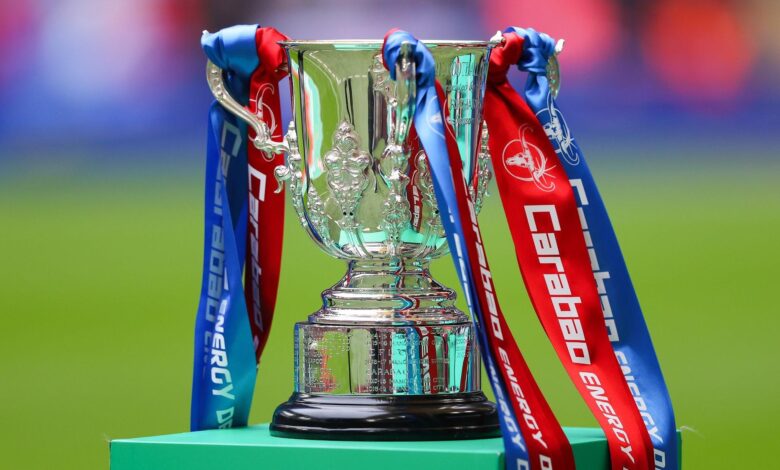The Carabao Cup: A Comprehensive Look at England’s League Cup

The Carabao Cup, officially known as the EFL Cup, is one of the most prominent domestic football tournaments in England. Organized by the English Football League (EFL), it is a competition steeped in tradition and drama, offering clubs from all tiers of English professional football an opportunity to claim silverware and secure a route into European competitions. Over the years, the Carabao Cup has become a staple of the English football calendar, blending excitement, upsets, and memorable moments.
Origins and History
The EFL Cup was first introduced in the 1960-61 season as a response to the growing number of football matches being televised. Initially, it was viewed as a secondary competition compared to the prestigious FA Cup. However, its format—open to clubs from the top four tiers of English football—offered smaller clubs a chance to compete against the giants of the game.
The competition has undergone numerous name changes due to sponsorship agreements, with Carabao, a Thai energy drink company, taking over the title sponsorship in 2017. Past sponsors have included Milk, Littlewoods, Coca-Cola, and Capital One, among others.
The inaugural EFL Cup final took place in 1961, with Aston Villa defeating Rotherham United to claim the first-ever title. Since then, the tournament has grown in prestige, and many of England’s biggest clubs have dominated its history, including Liverpool, Manchester United, Manchester City, and Chelsea.
Format and Structure
The Carabao Cup follows a knockout format, beginning with the first round in August and concluding with the final in late February or early March. It is open to all 92 clubs across the Premier League and the three divisions of the EFL (Championship, League One, and League Two).
Key Stages of the Tournament:
- First Round: Features teams from League One, League Two, and most Championship clubs.
- Second Round: Premier League teams not participating in European competitions join.
- Third Round: Clubs involved in European tournaments enter the competition.
- Subsequent Rounds: Quarterfinals, semifinals, and the final.
The semifinals are unique in that they are played over two legs, with one match at each participating team’s home ground. The final is a single-match affair held at Wembley Stadium, offering a grand spectacle for fans and players alike.
Unlike the FA Cup, there are no replays in the Carabao Cup. If a match is tied after 90 minutes, it proceeds directly to penalties. This rule has been instrumental in ensuring the tournament’s compact scheduling and high-intensity matches.
Significance and Rewards
The Carabao Cup may not hold the same prestige as the Premier League or the FA Cup, but it plays a vital role in the English football ecosystem. For smaller clubs, it represents an opportunity to challenge elite teams and earn valuable revenue from gate receipts and television rights. For top-tier teams, it offers a chance to rotate squads, blood young talent, and maintain momentum.
Winning the Carabao Cup guarantees a spot in the UEFA Europa Conference League, providing an additional incentive for clubs to take the competition seriously. For managers and players, lifting the trophy at Wembley is a significant achievement that can enhance their careers and cement their place in the club’s history.
Memorable Moments
The Carabao Cup has delivered countless memorable moments, from giant killings to dramatic finales. Here are a few highlights:
Bradford City’s 2012-13 Campaign: Bradford City, then a League Two side, defied the odds by reaching the final, defeating Premier League sides Wigan Athletic, Arsenal, and Aston Villa along the way. Though they lost to Swansea City in the final, their run remains one of the greatest underdog stories in the competition’s history.
Liverpool’s Dominance: Liverpool holds the record for the most EFL Cup victories, having won the competition nine times. Their dominance in the 1980s, including four consecutive titles from 1981 to 1984, solidified their status as a footballing powerhouse.
Chelsea vs. Tottenham Hotspur (2008 Final): The 2008 final saw Chelsea and Tottenham face off in a thrilling contest. Spurs emerged victorious with a 2-1 win after extra time, securing their first trophy in nearly a decade.
Manchester City’s Recent Success: Manchester City has dominated the Carabao Cup in recent years, winning four consecutive titles from 2018 to 2021 under Pep Guardiola. Their success reflects their depth and focus on winning every competition they enter.
Criticism and Controversy
Despite its rich history, the Carabao Cup has faced criticism over the years. Some argue that the competition has lost its relevance in the modern football landscape, where the Premier League and European competitions dominate attention. Others point to fixture congestion, with managers often fielding weakened teams to prioritize other tournaments.
The competition’s reliance on sponsorship deals has also drawn scrutiny, with frequent name changes making it challenging for fans to maintain a consistent connection to the tournament.
Future of the Carabao Cup
The Carabao Cup’s future remains a topic of debate. With the expansion of European competitions and the increasingly packed football calendar, some have called for a revamp of the tournament’s format or even its abolition. However, the EFL has expressed a strong commitment to preserving the competition, citing its importance to clubs across the football pyramid.
Proposals to introduce new innovations, such as hosting matches abroad or incorporating VAR at earlier stages, have been discussed to enhance the tournament’s appeal. Balancing tradition with modernization will be key to ensuring the Carabao Cup remains a vibrant part of English football.
Conclusion
The Carabao Cup occupies a unique place in English football, offering a blend of history, opportunity, and excitement. While it may not command the same prestige as other competitions, its role in fostering competitive spirit and providing a platform for both emerging talent and seasoned professionals cannot be understated.
As the football landscape continues to evolve, the Carabao Cup’s ability to adapt while preserving its core identity will determine its relevance in the years to come. For now, it remains a cherished competition that embodies the unpredictable and passionate nature of English football.





